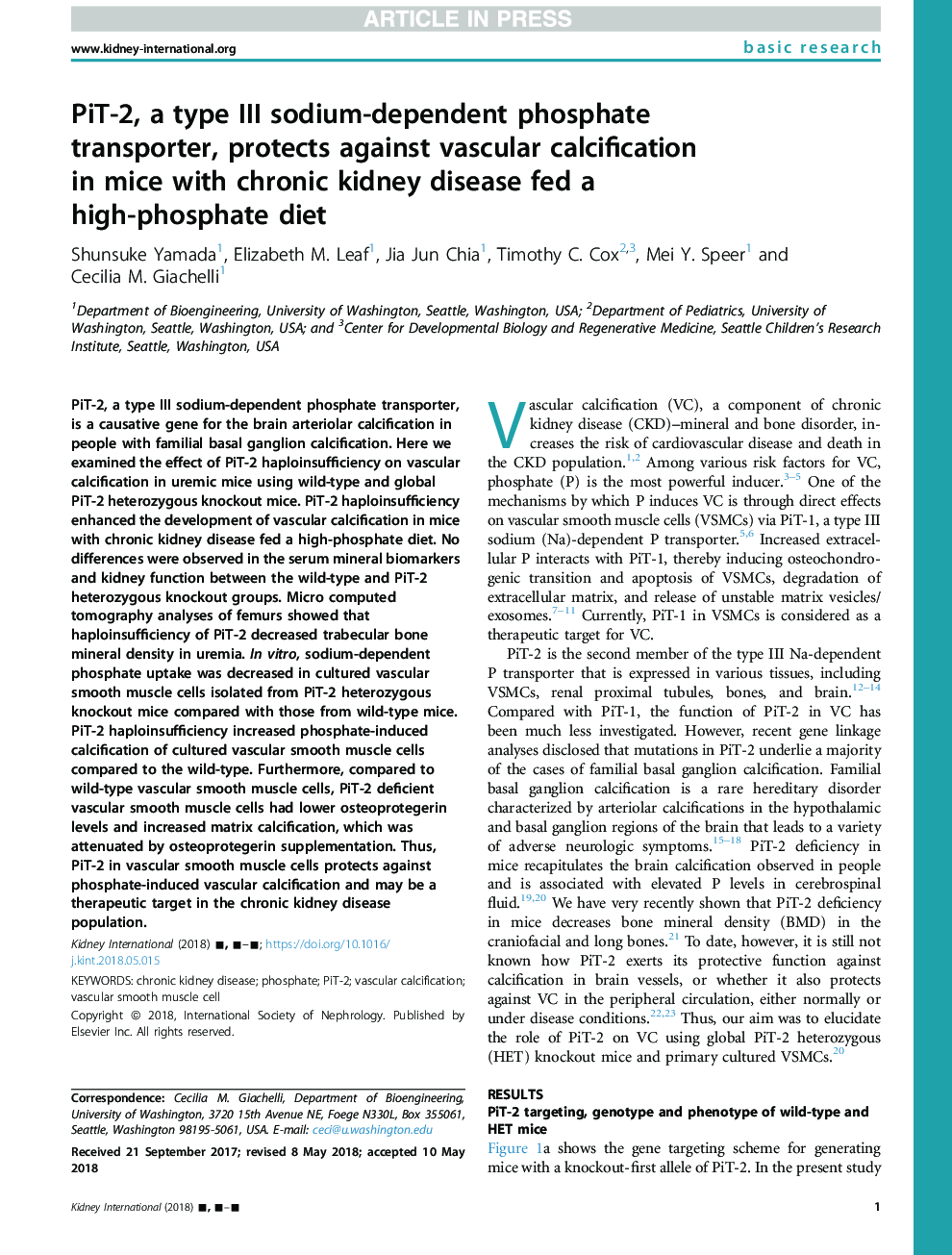| Article ID | Journal | Published Year | Pages | File Type |
|---|---|---|---|---|
| 10219525 | Kidney International | 2018 | 12 Pages |
Abstract
PiT-2, a type III sodium-dependent phosphate transporter, is a causative gene for the brain arteriolar calcification in people with familial basal ganglion calcification. Here we examined the effect of PiT-2 haploinsufficiency on vascular calcification in uremic mice using wild-type and global PiT-2 heterozygous knockout mice. PiT-2 haploinsufficiency enhanced the development of vascular calcification in mice with chronic kidney disease fed a high-phosphate diet. No differences were observed in the serum mineral biomarkers and kidney function between the wild-type and PiT-2 heterozygous knockout groups. Micro computed tomography analyses of femurs showed that haploinsufficiency of PiT-2 decreased trabecular bone mineral density in uremia. In vitro, sodium-dependent phosphate uptake was decreased in cultured vascular smooth muscle cells isolated from PiT-2 heterozygous knockout mice compared with those from wild-type mice. PiT-2 haploinsufficiency increased phosphate-induced calcification of cultured vascular smooth muscle cells compared to the wild-type. Furthermore, compared to wild-type vascular smooth muscle cells, PiT-2 deficient vascular smooth muscle cells had lower osteoprotegerin levels and increased matrix calcification, which was attenuated by osteoprotegerin supplementation. Thus, PiT-2 in vascular smooth muscle cells protects against phosphate-induced vascular calcification and may be a therapeutic target in the chronic kidney disease population.
Related Topics
Health Sciences
Medicine and Dentistry
Nephrology
Authors
Shunsuke Yamada, Elizabeth M. Leaf, Jia Jun Chia, Timothy C. Cox, Mei Y. Speer, Cecilia M. Giachelli,
